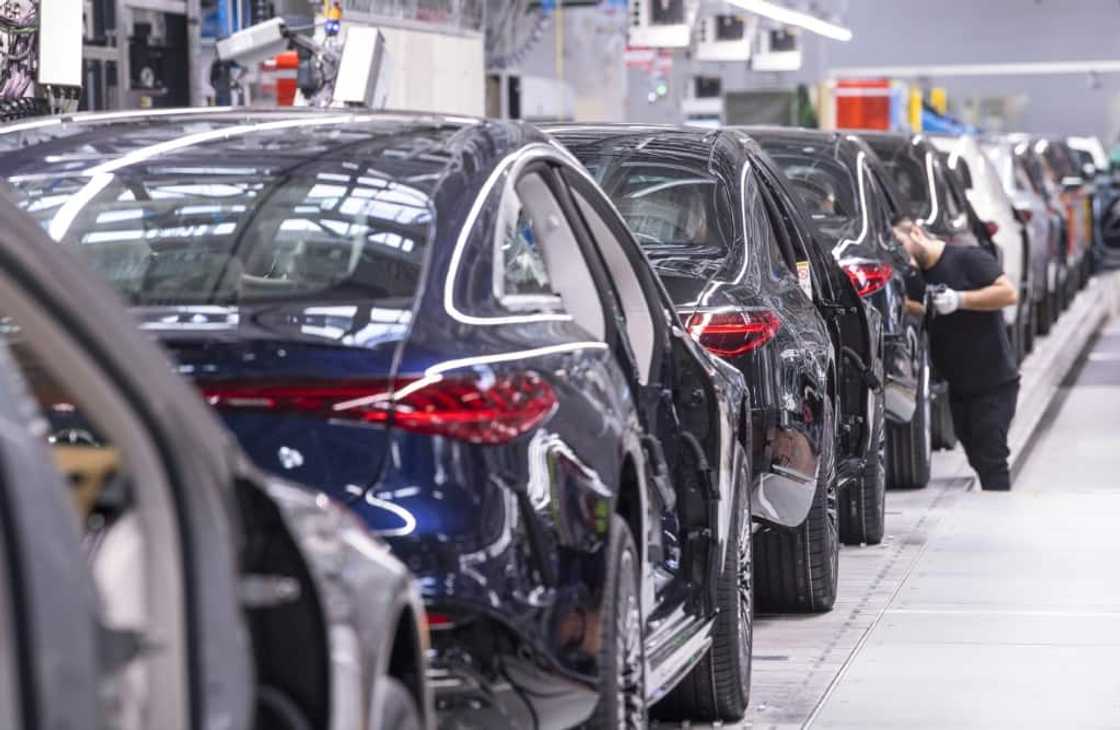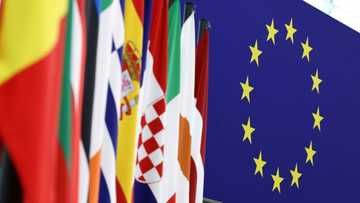German economy to nearly flatline this year, think-tanks say

Source: AFP
The German economy is expected to barely grow this year, leading economic institutes said Wednesday, as weak demand at home and abroad slows the path to recovery.
Europe's largest economy will expand by just 0.1 percent in 2024, five think-tanks said in a joint statement, a sharp downgrade from their earlier forecast of 1.3 percent growth.
"Cyclical and structural factors are overlapping in the sluggish overall economic development," said Stefan Kooths from the Kiel Institute for the World Economy (IfW Kiel).
"Although a recovery is likely to set in from the spring, the overall momentum will not be too strong," he added.
The German economy shrank by 0.3 percent last year, battered by inflation, high interest rates and cooling exports, and is struggling to emerge from the doldrums.
Even though inflation has steadily dropped in recent months, consumer spending was picking up "later and less dynamically" than previously forecast as wages lag behind, the institutes (DIW, Ifo, IfW Kiel, IWH and RWI) said.
PAY ATTENTION: Let yourself be inspired by real people who go beyond the ordinary! Subscribe and watch our new shows on Briefly TV Life now!
And Germany's export sector, usually a key driver of economic growth, was suffering from cooling foreign trade against a fragile global economic backdrop.
Energy-intensive businesses in particular have been hit hard by soaring energy prices following Russia's war in Ukraine, contributing to a manufacturing slump in Europe's industrial powerhouse.
Corporate investments meanwhile have been dampened not just by the European Central Bank's interest rate rises, which have made borrowing more expensive, but also by "uncertainty about economic policy", the institutes said.
Debt brake debate
The criticism of Berlin comes after a shock legal ruling late last year threw Chancellor Olaf Scholz's budget into disarray, forcing the government to rethink its spending plans.
The government recently also drastically downgraded its own economic forecasts, expecting output to expand by just 0.2 percent this year.
Economy Minister Robert Habeck last month acknowledged the economy was "in rough waters" and in need of a "reform booster".
But Scholz's three-way coalition government -- made up of the Social Democrats, the Greens and the liberal FDP -- is divided over how to turn the tide.
Calls have grown for the government to relax its constitutionally enshrined "debt brake", a self-imposed cap on annual borrowing, in order to turbocharge much-needed spending on infrastructure modernisation and the green transition.
Habeck is in favour of relaxing the debt rules, but Finance Minister Christian Lindner from the FDP is deeply opposed.
The think-tanks said they recommended "a mild reform" of the debt brake to allow "for more debt-financed investments than before".
Looking ahead, the institutes expect the recovery to quicken next year as inflation eases further and demand picks up.
They now expect the economy to grow by 1.4 percent in 2025, only slightly below their previous forecast of 1.5 percent.
PAY ATTENTION: Сheck out news that is picked exactly for YOU - click on “Recommended for you” and enjoy!
Source: AFP



